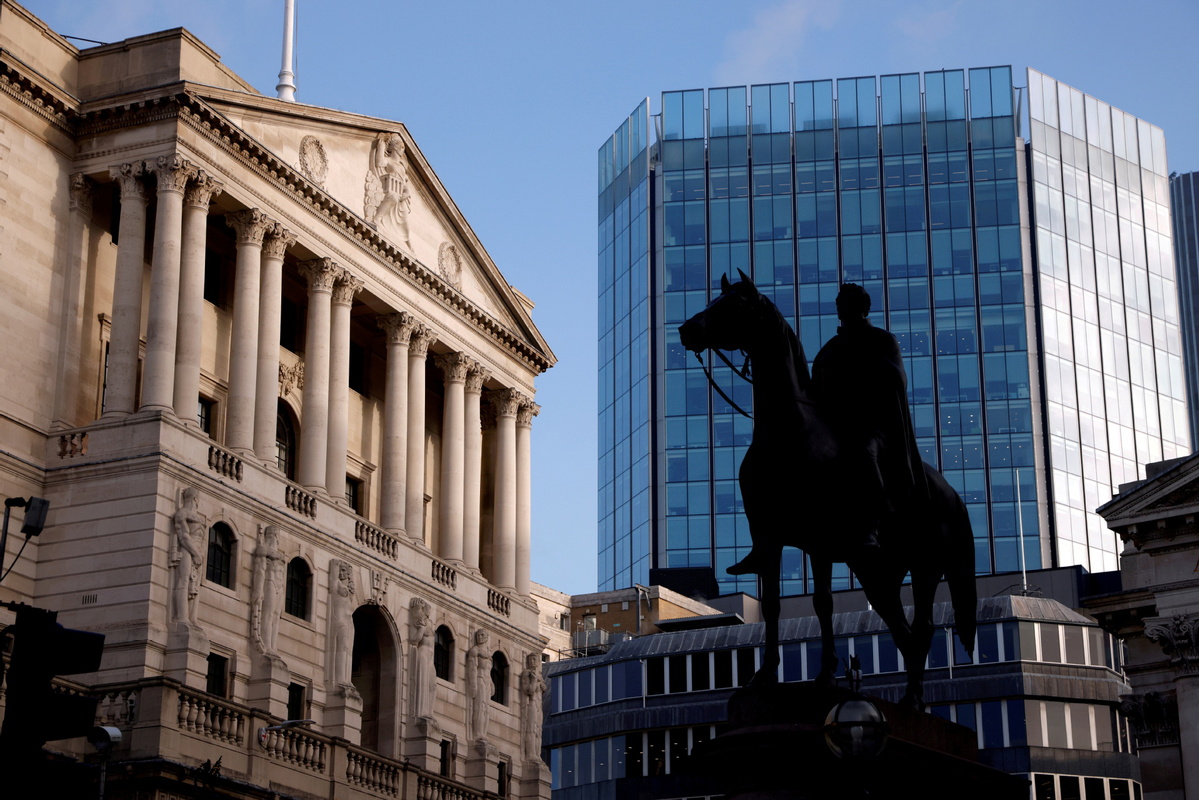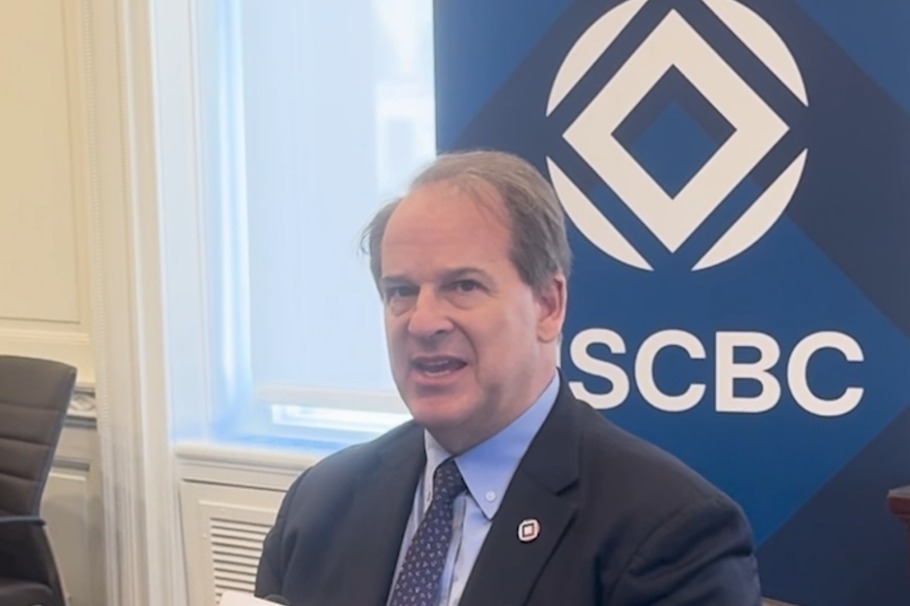Bank's optimism may mask cause for concern


The Bank of England's recent optimistic reassessment of the United Kingdom's economic outlook may have masked "a more gloomy assessment" of its prospects for this year and next, the Financial Times has reported.
The paper noted on Tuesday that the central bank's upgrade last week of its earlier dour prediction included some worrying information that was largely overlooked by commentators who fixated on the fact that it contained the highest expected growth rate for almost 70 years.
The Financial Times said the "strong upward revision of the annual forecast for 2021", from 5 percent growth to 7.25 percent, was extrapolated from the fact that the economy did better than expected recently, and that it looks to have developed more resilience: both reassessments of pre-existing facts available when the last projection was made.
But the paper said the forecast, which was approved by the majority of the Bank of England's monetary policy committee, or MPC, contained "some odd features" that were not highlighted by Andrew Bailey, the bank's governor, when he talked to reporters about expectations.
The FT said Bailey failed to mention the improved outlook was based entirely on a change in the bank's interpretation of past performance.
It said the reassessment skirted around the fact that the bank actually scaled back its anticipation of economic growth when extra spending contained in the March budget is taken into account, alongside the fact that businesses have brought investment forward to take advantage of time-limited changes in corporation tax.
The FT said it analyzed the central bank's February and May forecasts and found the MPC had, despite the headline-grabbing narrative of improved expectations, revised down its predictions for the second quarter of 2021 by 0.9 percentage points, and by 0.65 percentage points in both the third and fourth quarters. It said growth forecasts were also revised down slightly for all of 2022.
The FT noted that Andy Haldane, the central bank's chief economist, had previously described his colleagues on the MPC as being too gloomy about the economy's prospects. Haldane made it clear he believed the economy had performed better than previously thought in the second half of 2020, an assessment the rest of the MPC now looks to have bought into.
Haldane wrote in his explanation of the bank's change of emphasis: "There was now clear evidence that the economy was growing rapidly, with both household and company spending surprising significantly and persistently to the upside, and consumer and business confidence bouncing back."
He added that "there were good reasons for believing this strength in domestic demand would be maintained, including by the running down of the large stock of accumulated savings, leading to a larger and more sustained period of excess demand than was incorporated in the May central projections".
But Bailey said, as he unveiled the revised projection: "Demand growth is boosted by a decline in health risks and a fall in uncertainty, as well as fiscal and monetary stimulus."
Many economists are now voicing concern that the release of pent-up consumer demand could trigger inflation.
The Bank of England is not alone, however, in projecting a swift recovery for the UK economy. Goldman Sachs recently said it is expecting almost 8 percent growth this year.
































